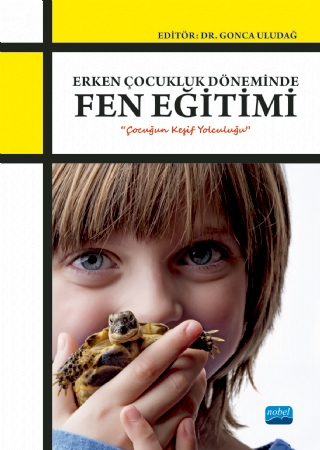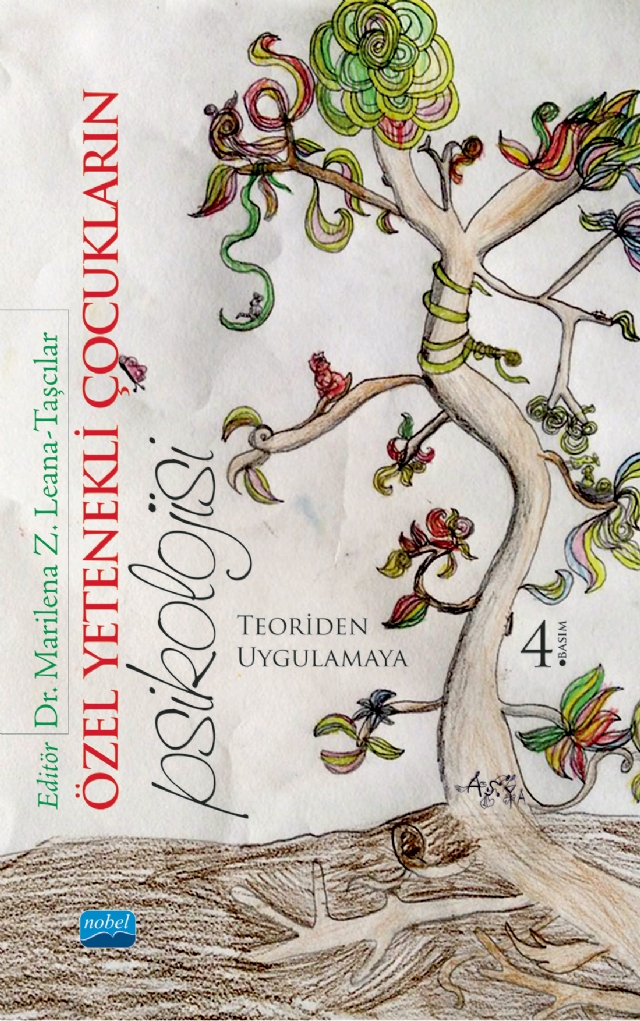Engine Development \ 1-1

Do you remember what you were curious about when you were a little kid? Where the sun goes at night, how a spider weaves its web, how birds can fly, how our eyes can see, how ships can swim without sinking, how snow is formed, why our shadow is sometimes too long and sometimes too short… Children wonder about all these and much more. . Every experience to seek answers to the questions created by their curiosity is a science-related experience. Because science is life itself.
Curiosity, desire to explore and explore… A child's desire to learn about the world he was born into, the objects around him, matter, people, nature and many other things brings him together with concepts and subjects related to science. Therefore, the need to include science education in early childhood is an important fact. Based on this fact, this book, prepared by academicians who are experts in their fields, includes scientific information on "science education in early childhood", examples of activities, suggestions for teachers and parents, examples from practices in the world and in our country, and various resource suggestions that can be used. Topics covered in the book are:
• Science Education and Its Importance in Early Childhood Period
• Understanding the Nature of Science in Early Childhood
• Interaction of Science with Mathematics, Art, Literature, Literacy, History, Creativity, Technology and Play
• Acquisition of Science Concepts in Early Childhood Period
• Scientific Process Skills
• Use of Thinking Routines in Early Childhood Science Education
• Methods and Techniques in Early Childhood Science Education
• Project Based Approach and Project Examples in Early Childhood Science Education
• Drama in Early Childhood Science Education
• STEM Approach in Early Childhood Science Education
• Coding, Robotic and Computational Thinking in Early Childhood
• The Importance of Making Scientific Explanations in Science Education and Various Subjects
• Planning, Implementation and Evaluation Processes of Science Activities in Early Childhood Education
• The Role of the Teacher in Early Childhood Science Education
• The Role of Parents in Early Childhood Science Education
• The Place of Science Education in Early Childhood Education Approaches
• Early Childhood Science Education Programs
• Environmental Education in Early Childhood Period
• Geography Education in Early Childhood Period
• “Science” with Stories
• “Science Activities” with the Experiences of a Preschool Teacher.
We hope that the book will contribute to valuable researchers working in the field of early childhood education, valuable teachers and teacher candidates, dear parents and all our readers who are interested in the subject, especially our beloved children in early childhood.
Curiosity, desire to explore and explore… A child's desire to learn about the world he was born into, the objects around him, matter, people, nature and many other things brings him together with concepts and subjects related to science. Therefore, the need to include science education in early childhood is an important fact. Based on this fact, this book, prepared by academicians who are experts in their fields, includes scientific information on "science education in early childhood", examples of activities, suggestions for teachers and parents, examples from practices in the world and in our country, and various resource suggestions that can be used. Topics covered in the book are:
• Science Education and Its Importance in Early Childhood Period
• Understanding the Nature of Science in Early Childhood
• Interaction of Science with Mathematics, Art, Literature, Literacy, History, Creativity, Technology and Play
• Acquisition of Science Concepts in Early Childhood Period
• Scientific Process Skills
• Use of Thinking Routines in Early Childhood Science Education
• Methods and Techniques in Early Childhood Science Education
• Project Based Approach and Project Examples in Early Childhood Science Education
• Drama in Early Childhood Science Education
• STEM Approach in Early Childhood Science Education
• Coding, Robotic and Computational Thinking in Early Childhood
• The Importance of Making Scientific Explanations in Science Education and Various Subjects
• Planning, Implementation and Evaluation Processes of Science Activities in Early Childhood Education
• The Role of the Teacher in Early Childhood Science Education
• The Role of Parents in Early Childhood Science Education
• The Place of Science Education in Early Childhood Education Approaches
• Early Childhood Science Education Programs
• Environmental Education in Early Childhood Period
• Geography Education in Early Childhood Period
• “Science” with Stories
• “Science Activities” with the Experiences of a Preschool Teacher.
We hope that the book will contribute to valuable researchers working in the field of early childhood education, valuable teachers and teacher candidates, dear parents and all our readers who are interested in the subject, especially our beloved children in early childhood.

“…This book shows how children's early exposure to nature provides fertile ground for the training of the heart and spirit as well as the mind.”
Dr. Louise Chawla
“…Developing a shared understanding of Forest School practices and cultural structure (ethos) will reassure teachers and help parents understand that their children will enjoy learning through play at Forest School.”
Dr. Frances Harris
“…This book covers important topics that will increase readers' knowledge of practice and theory by focusing on the underlying theories and philosophy of the Forest School and how this approach can contribute to holistic child development.”
Dr. Liz O'Brien
“…The Forest School in the UK is a model assumed to have evolved by those of us lucky enough to be there, building on and discussing the collective background knowledge and experience and cultural contexts we come from, and continues to be shaped and developed by practitioners today.”
Dr. Sarah Knight
“...This book is a handbook that aims to increase the theoretical and practical knowledge of individuals' learning in nature and the approach known worldwide as the Forest School. I think all educators, researchers, parents and people interested in learning in nature with children, learning with nature and learning through nature will find something valuable in this handbook.”
Dr. Mark Leather
“...Children will be our future; they will be the policy makers, the parents, the people who make the decisions that will affect the world we live in. The authors of this book are committed to allowing our children the opportunity to grow and develop and become the best people they can be.”
Sarah Blackwell
Dr. Louise Chawla
“…Developing a shared understanding of Forest School practices and cultural structure (ethos) will reassure teachers and help parents understand that their children will enjoy learning through play at Forest School.”
Dr. Frances Harris
“…This book covers important topics that will increase readers' knowledge of practice and theory by focusing on the underlying theories and philosophy of the Forest School and how this approach can contribute to holistic child development.”
Dr. Liz O'Brien
“…The Forest School in the UK is a model assumed to have evolved by those of us lucky enough to be there, building on and discussing the collective background knowledge and experience and cultural contexts we come from, and continues to be shaped and developed by practitioners today.”
Dr. Sarah Knight
“...This book is a handbook that aims to increase the theoretical and practical knowledge of individuals' learning in nature and the approach known worldwide as the Forest School. I think all educators, researchers, parents and people interested in learning in nature with children, learning with nature and learning through nature will find something valuable in this handbook.”
Dr. Mark Leather
“...Children will be our future; they will be the policy makers, the parents, the people who make the decisions that will affect the world we live in. The authors of this book are committed to allowing our children the opportunity to grow and develop and become the best people they can be.”
Sarah Blackwell

The education of gifted and talented students, or as it has been called until today, is an area that has been known for a long time and is being developed. However, most of the studies carried out in our country focus mainly on meeting the educational needs of gifted children. Problems such as motivation, perfectionism, and math anxiety experienced by gifted children, their reflections on educational processes, and offering solutions such as bibliotherapy that can be used in support training rooms for these problems are issues that are not emphasized much. Therefore, this book; It aims to raise awareness of teacher candidates, teachers working in this field, psychological counselors, psychologists and parents of gifted children on these issues. For this purpose, academic theses and studies on the emotional problems of gifted children have been provided to you in a simpler language.
The common wish of all authors is to contribute to your being a high-aware supporter of the issues that our special talented/gifted children have emotional difficulties. We invite you to discover the inner worlds of gifted children! Happy reading….
The common wish of all authors is to contribute to your being a high-aware supporter of the issues that our special talented/gifted children have emotional difficulties. We invite you to discover the inner worlds of gifted children! Happy reading….